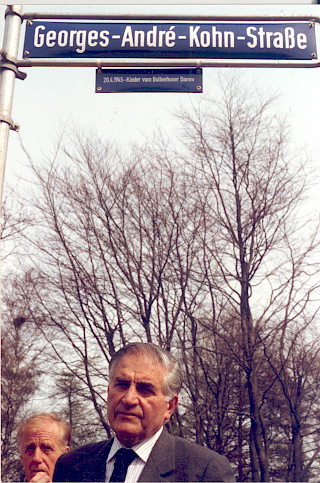Georges-André Kohn
Georges-André Kohn was born on April 23, 1932, in Paris, France.
He had three older siblings: Rose-Marie, Philippe, and Antoinette.
Georges-André was murdered at the age of twelve at Bullenhuser Damm in Hamburg.
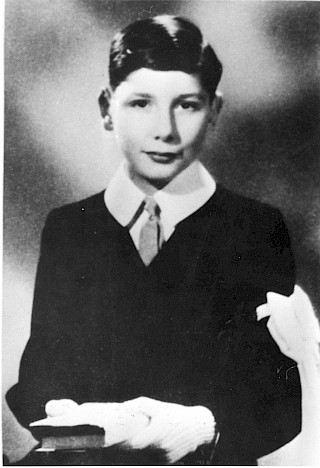
Georges-André's father, Armand Kohn, was Secretary General of the Rothschild Foundation in Paris.
On the morning of July 28, 1944, four weeks before the city was liberated, a small bus stopped outside the Kohn house. The head of the Gestapo, Alois Brunner, had arrived with two SS men to arrest the entire family: the grandmother, parents, and four children
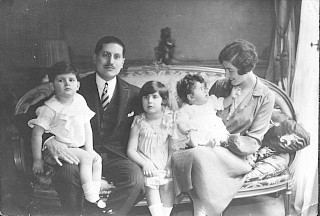
August 17, 1944: The deportation train departs. Three days later, prisoners break the bars on the train windows in a desperate attempt to escape. Thirty people manage to flee - including Philippe, the eldest son of the Kohn family, and his sister, Rose-Marie.
Eighty-year-old Jeanne Kohn, André’s grandmother, was murdered in Auschwitz. His mother, Suzanne, and sister, Antoinette, died in Bergen-Belsen.
Georges-André’s father survived the Buchenwald concentration camp.
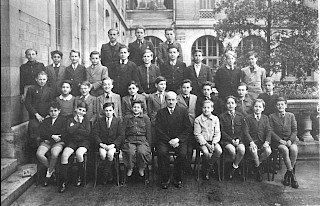
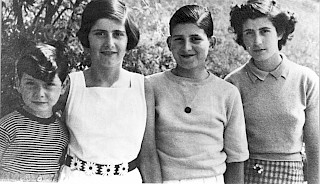
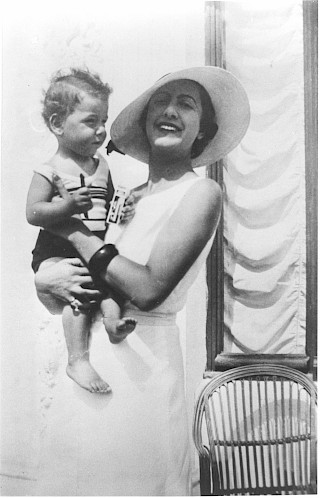
Philippe Kohn only learnt about what happened to his little brother long after his father died. Philippe lived in Paris until his death, although he often visited Hamburg.
To Gunther Schwarberg, who had found the Kohn family in Paris, Philippe said:
'You are my brother.'
Philippe was also the Honorary President of the Children of Bullenhuser Damm Association.
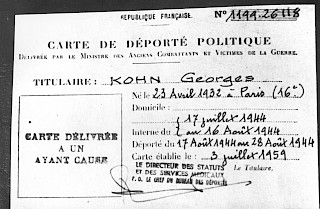
In Hamburg-Burgwedel, a street has been named in Georges-Andre’s honour: Georges-Andre-Kohn-Strasse.
